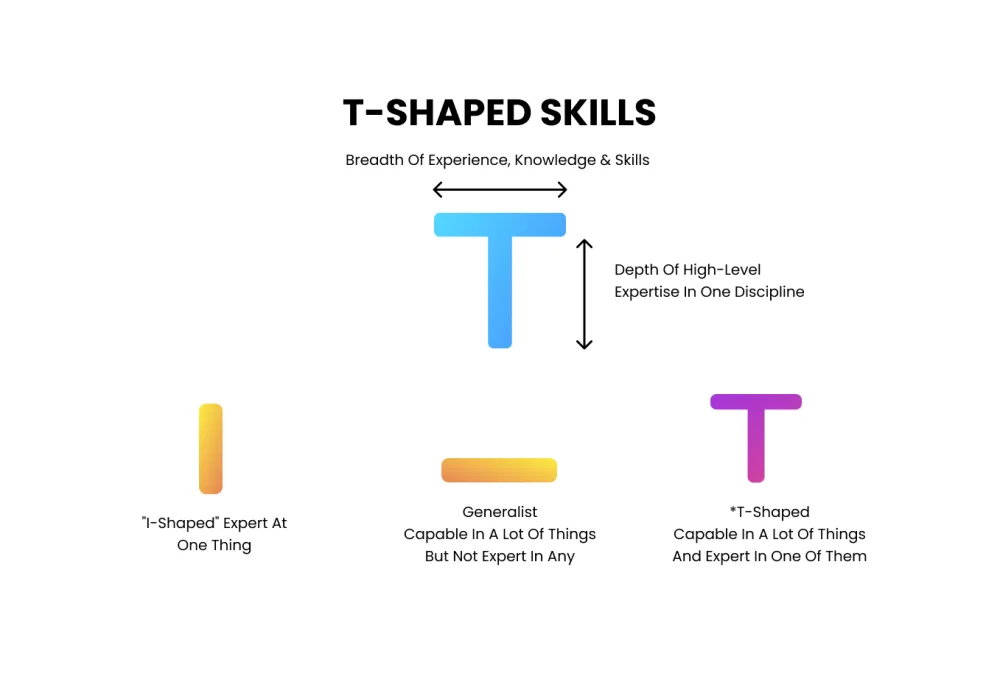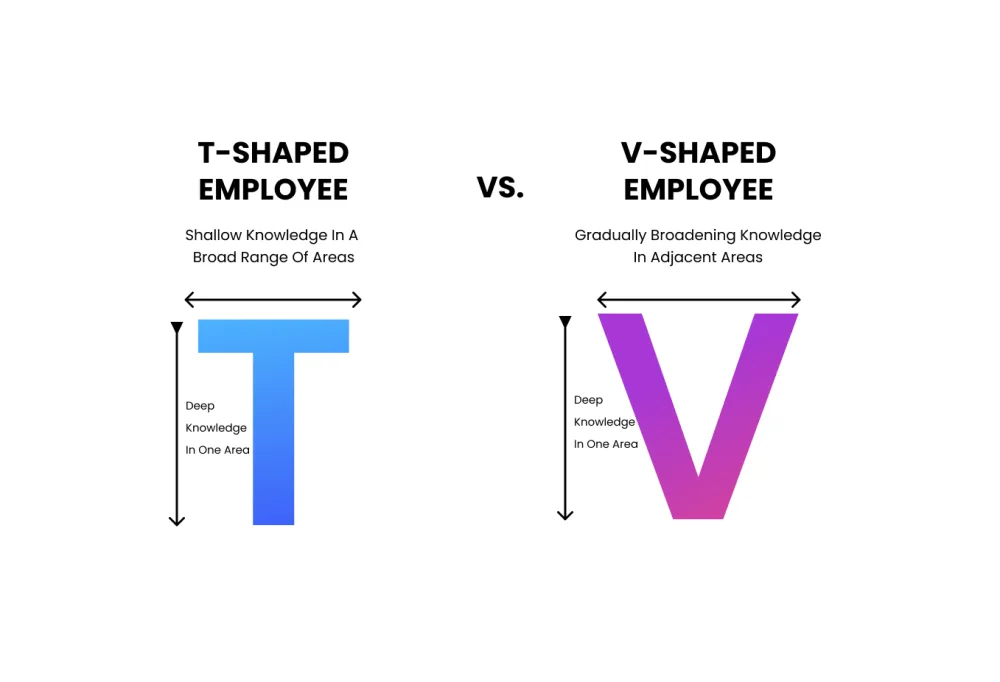Imagine you’re at a tech conference after-party. In one corner, there’s a developer rattling off a list of languages she’s proficient in - from Python to Rust, React to Kotlin. In another, there’s a guy deep-diving into the intricacies of quantum computing, lost in a world of qubits and superposition.
Two different species in the tech ecosystem. One’s a Swiss Army knife, ready to tackle any problem thrown her way. The other’s a laser, focused on cutting through one specific, complex challenge.
This isn’t just a scene at a party - it’s a snapshot of a debate that’s been raging in the tech world since the first lines of code were written. Should you spread your skills wide, or drill them deep?
It’s not just an abstract question. Your answer could shape your entire career trajectory, influence which companies you’ll thrive in, and even determine how you’ll weather the storms of tech’s ever-changing landscape.
The Generalist: Tech’s Swiss Army Knife
Generalists in tech are the ultimate adapters. They’re comfortable discussing UI/UX with designers, debating architecture with backend devs, and translating tech-speak for the marketing team.
In startups, generalists are often the heroes. They can quickly prototype new ideas, pivot when needed, and fill gaps across the organization. They’re the ones who can see how all the pieces fit together and often end up in leadership roles.
But being a generalist isn’t just about knowing a bit of everything. It’s about being able to synthesize knowledge from different domains and apply it in new ways. It’s about seeing patterns and connections that others miss.
The Specialist: Tech’s Deep Sea Diver
Specialists are the ones pushing the boundaries of what’s possible. They’re the ones making breakthroughs in AI, revolutionizing database technology, or creating new programming paradigms.
In big tech companies, specialists often lead innovation in specific areas. They’re the go-to people when there’s a complex problem that needs solving. They can dive deep into issues that would leave generalists scratching their heads.
But specialization in tech isn’t just about knowing one thing really well. It’s about being at the forefront of your field, anticipating where it’s going, and sometimes even steering its direction.
The Industry Impact
This divide shapes more than individual careers - it influences how entire companies operate.
Consider Apple vs Google. Apple, known for its integrated approach, often favors generalists who can work across different aspects of a product. Google, on the other hand, has a reputation for hiring deep specialists, especially in areas like AI and search algorithms.
Then there’s Amazon, which seems to have found a balance. They need generalists to manage their vast, interconnected ecosystem, but also rely on specialists to optimize critical systems like their recommendation algorithms or cloud infrastructure.
The Shifting Landscape
We’re seeing the rise of what some call “T-shaped” professionals - people with broad knowledge across many areas (the horizontal bar of the T) and deep expertise in one or two areas (the vertical bar).
 (Image from treinetic)
(Image from treinetic)
T-shaped pros have a broad base of knowledge (the horizontal bar of the T) coupled with deep expertise in one area (the vertical bar). They’re the Swiss Army knives with a secret, high-powered laser attached.
In practice, this might look like a backend developer who knows her Java inside and out, but can also hold her own in conversations about UI/UX, cloud architecture, or data analysis. She’s not just stuck in her lane - she can see the whole highway and still zoom in on the details when needed.
While T-shaped professionals are great, some companies are now looking for V-shaped employees. But what exactly does that mean?
Unlike T-shaped professionals who have depth in one area and breadth across many, V-shaped employees have significant depth in two different domains.
 (Image from treinetic)
(Image from treinetic)
The Million-Dollar Question
So, should you be a generalist or a specialist?
There’s no one-size-fits-all answer. It depends on your interests, your strengths, and where you see the industry going.
If you thrive on variety and love seeing the big picture, the generalist path might be for you. You might end up as a CTO, a product manager, or a versatile developer who can tackle any project.
Specialists are the ones who push the boundaries of what’s possible, who turn science fiction into reality. They’re the ones who make self-driving cars navigate city streets, who create vaccines using computer models, who help telescopes peer into the farthest reaches of the universe.
When you specialize, you’re not just learning a skill - you’re embarking on a quest. You’re saying, “This is my Everest, and I’m going to climb it.” It’s not always an easy path, but for those who love the thrill of discovery, who get a rush from solving seemingly impossible problems, it’s an adventure like no other.
So if you find yourself obsessing over the intricacies of quantum computing, or losing sleep over how to make AI more ethical, or sketching out ideas for the next generation of cloud architecture - lean into it. That passion could be your superpower, your ticket to leaving a lasting mark on the tech world.